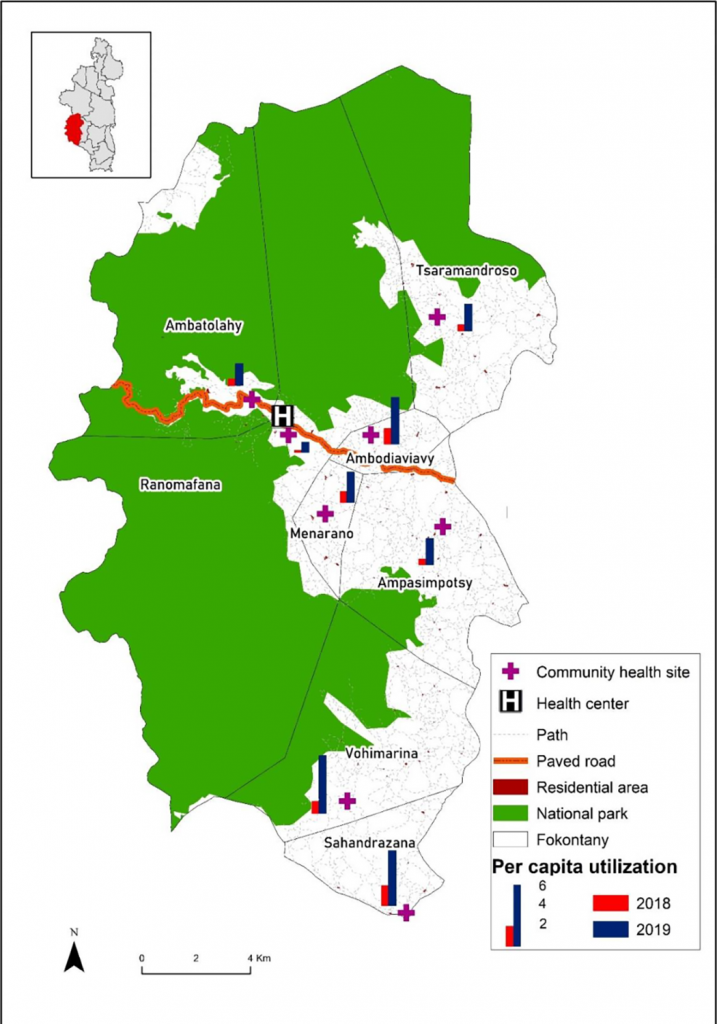13 Mar New Study Highlights Impact of Pivot’s Enhanced Community Health Program

Community Health Workers (CHWs) provide essential primary care in rural regions like Ifanadiana District, Madagascar. A new study in PLOS Global Public Health highlights the findings from an evaluation of Pivot’s enhanced community health (ECH) program. The pilot program improved patient access to primary care services, increasing CHW visits with children under-five by 269% from October 2019 to March 2021.
Within the ECH program, trained CHWs provided care for children under-five and pregnant women through household visits and at community health posts. CHWs were supervised twice monthly and received financial incentives for their work. In addition to increasing utilization, the program also improved quality of care, with 85% of sick children diagnosed and treated correctly, compared with 58% in areas without ECH.
The study reinforces that high quality, accessible care is essential to improving the health of communities and increasing access. “This [paper] is an important contribution in addressing a central challenge for improving health care in rural areas,” commented Matt Bonds, Pivot Scholar and Co-Founder.
Findings from the study have informed the scale-up of Pivot’s support for community health activities across Vatovavy Region. Over the next year, Pivot’s ECH program will expand to support 2,500 CHWs who will be trained, equipped, and supervised, providing care to 151,000 children under-five and nearly 200,000 women of reproductive age.
The study was led by Bénédicte Razafinjato, Pivot’s Director of Monitoring, Evaluation, Accountability, and Learning (MEAL) and Karen Finnegan, Managing Director of Pivot Science and a Research Associate at Harvard Medical School.
Figure: The enhanced community health program increased visits to CHWs across Ranomafana commune, but especially in fokotany (groups of villages) farther from the health center, demonstrating the vital role CHWs play in improving access to care for remote communities.
